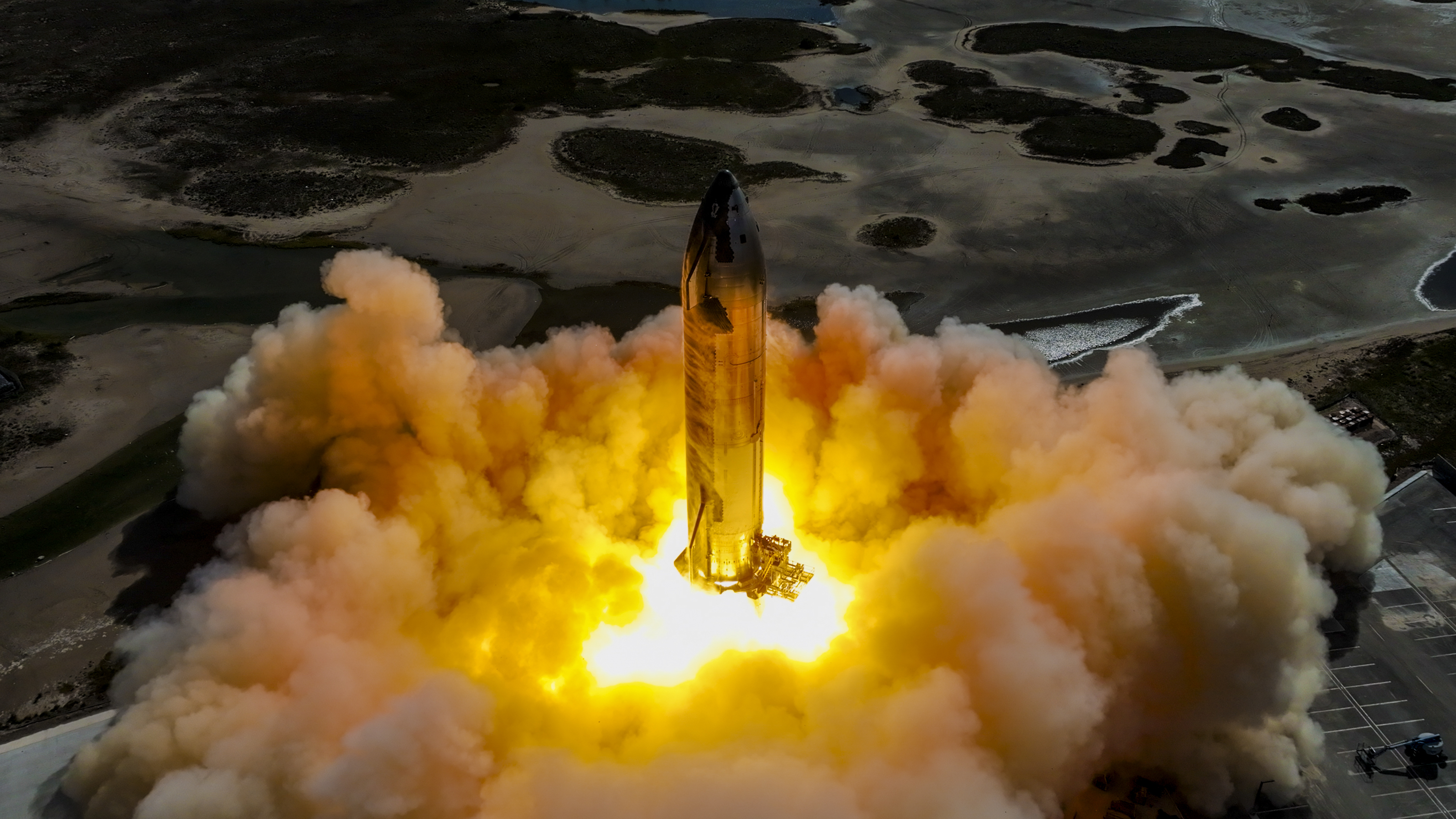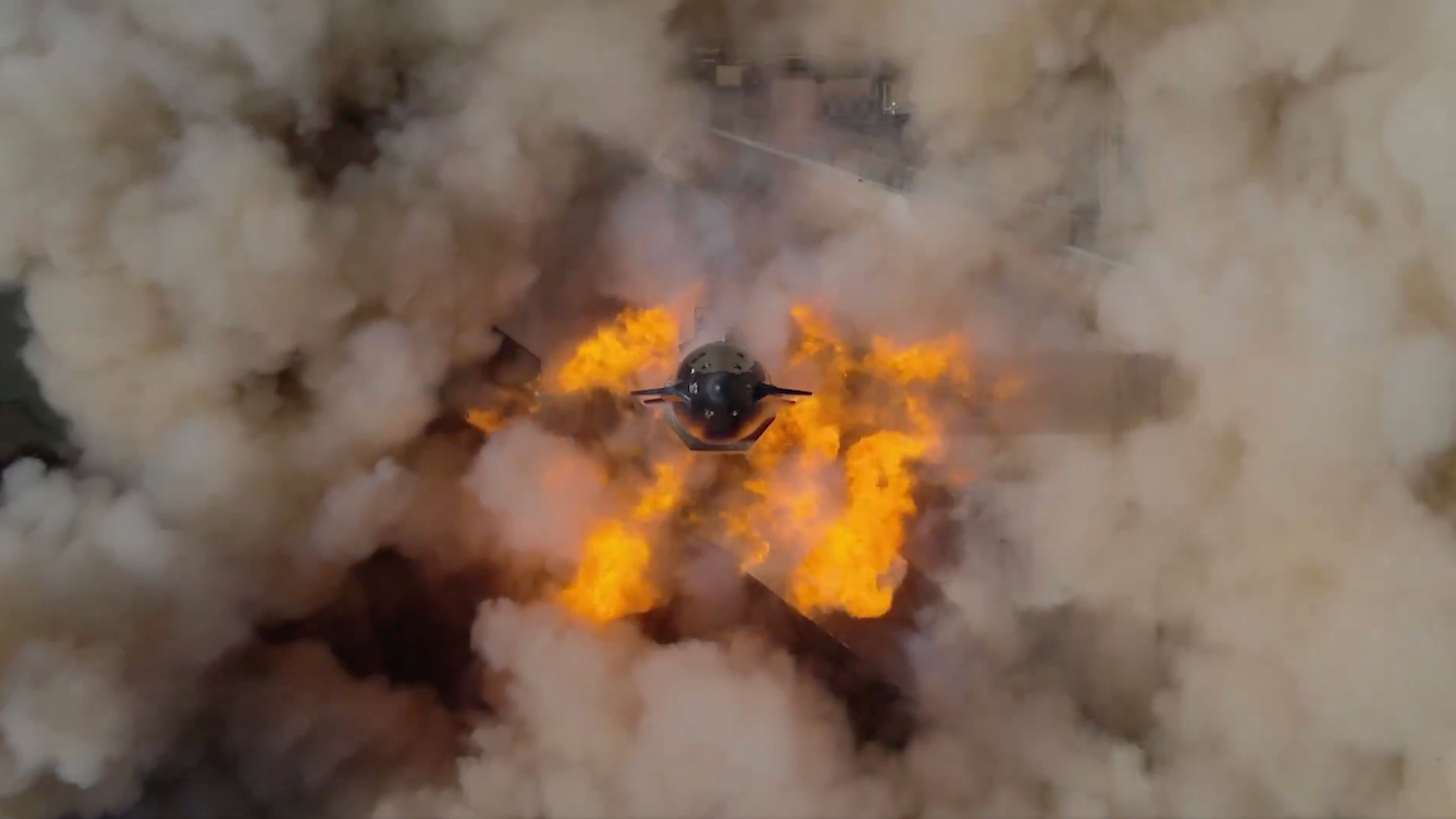
SpaceX's latest Starship vehicle has begun flexing its considerable muscle.
SpaceX conducted a "static fire" test today (Dec. 20) with the Starship upper-stage prototype known as Ship 28, briefly igniting the vehicle's Raptor engines while it remained anchored to the pad at the company's Starbase site in South Texas.
Ship 28 is being prepped to conduct Starship's third test flight, which SpaceX aims to launch in the coming weeks. And that timeline apparently remains in target, for today's trial went well.
"Flight 3 Starship completed a full-duration static fire with all six of its Raptor engines," SpaceX said this afternoon in a post on X (formerly known as Twitter), which also featured video of the test.
Related: SpaceX's 2nd Starship launch looks amazing in stunning photos and videos

Starship consists of two elements: a huge first-stage booster called Super Heavy and a 165-foot-tall (50 meters) upper-stage spacecraft known (somewhat redundantly) as Starship.
Both of these stages are designed to be fully and rapidly reusable, and both are powered by SpaceX's next-generation Raptor engine. Super Heavy sports 33 Raptors and Starship is powered by six of them, as SpaceX's post on X today noted.
Starship has flown twice to date, on test flights in April and November of this year. Both missions aimed to send the upper stage most of the way around Earth, targeting a splashdown in the Pacific Ocean near Hawaii.
Neither flight achieved that goal. Starship suffered a number of problems during its April debut, most notably the failure of its two stages to separate as planned, and SpaceX detonated the vehicle intentionally four minutes after liftoff.
Flight 2 notched some major successes, among them stage separation and a nominal first-stage engine burn. But it too ended early, with the explosion of the upper stage about eight minutes after launch.

SpaceX wants to get Starship aloft again soon, as shown by the current testing of Ship 28 and its flight partner, a Super Heavy prototype called Booster 10.
It's unclear when that will happen, however. Even if testing continues to go well, SpaceX may still have to wait a while for a launch license from the Federal Aviation Administration. The FAA is overseeing an investigation into what happened on Flight 2; it won't grant a license until that inquiry is done and SpaceX has implemented corrective actions, if any are required.







